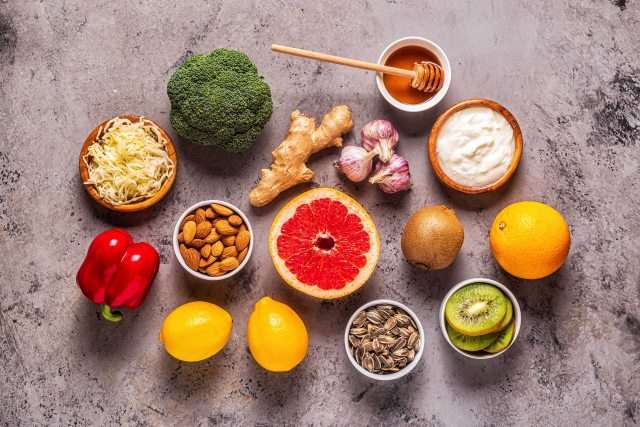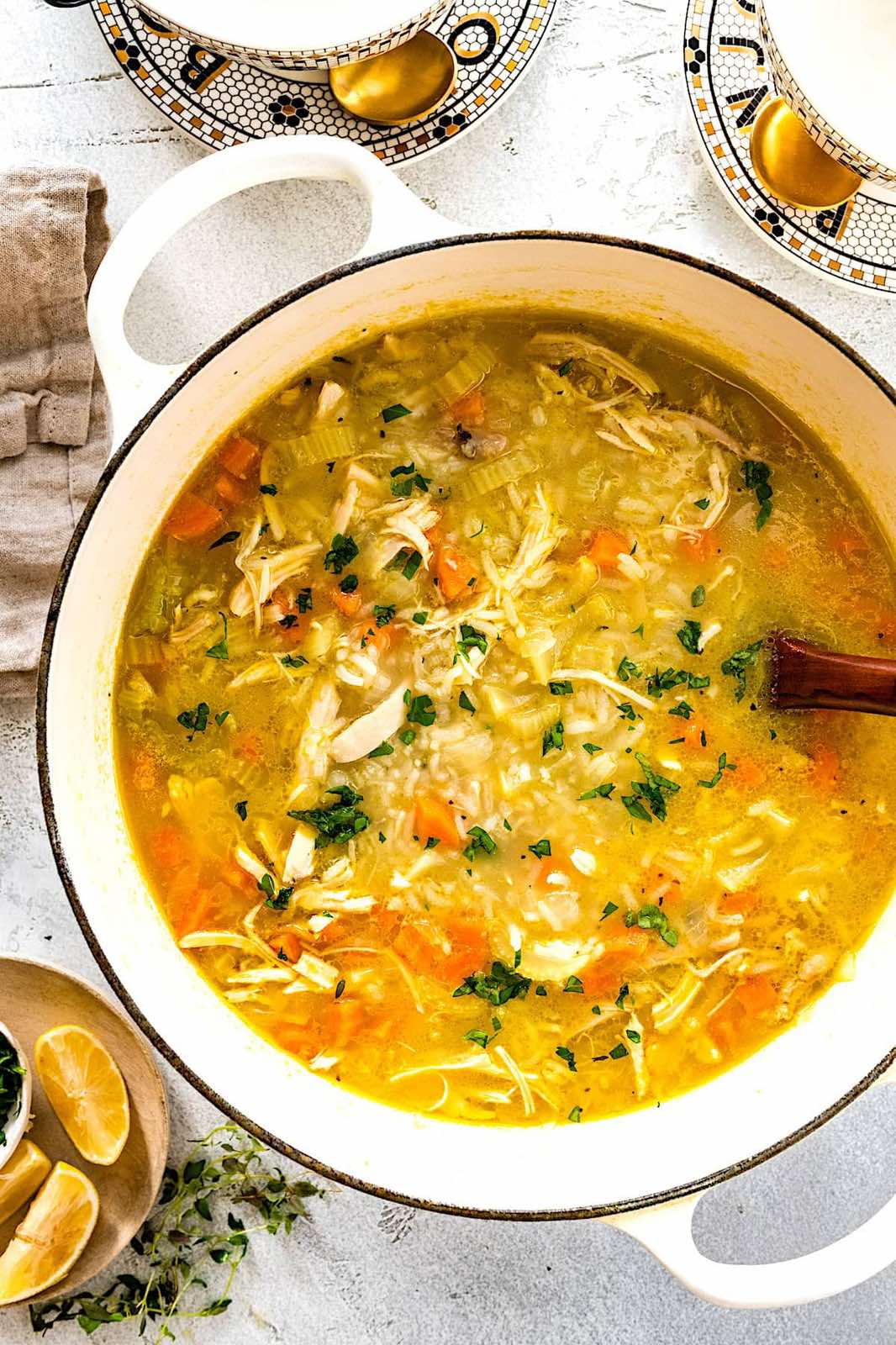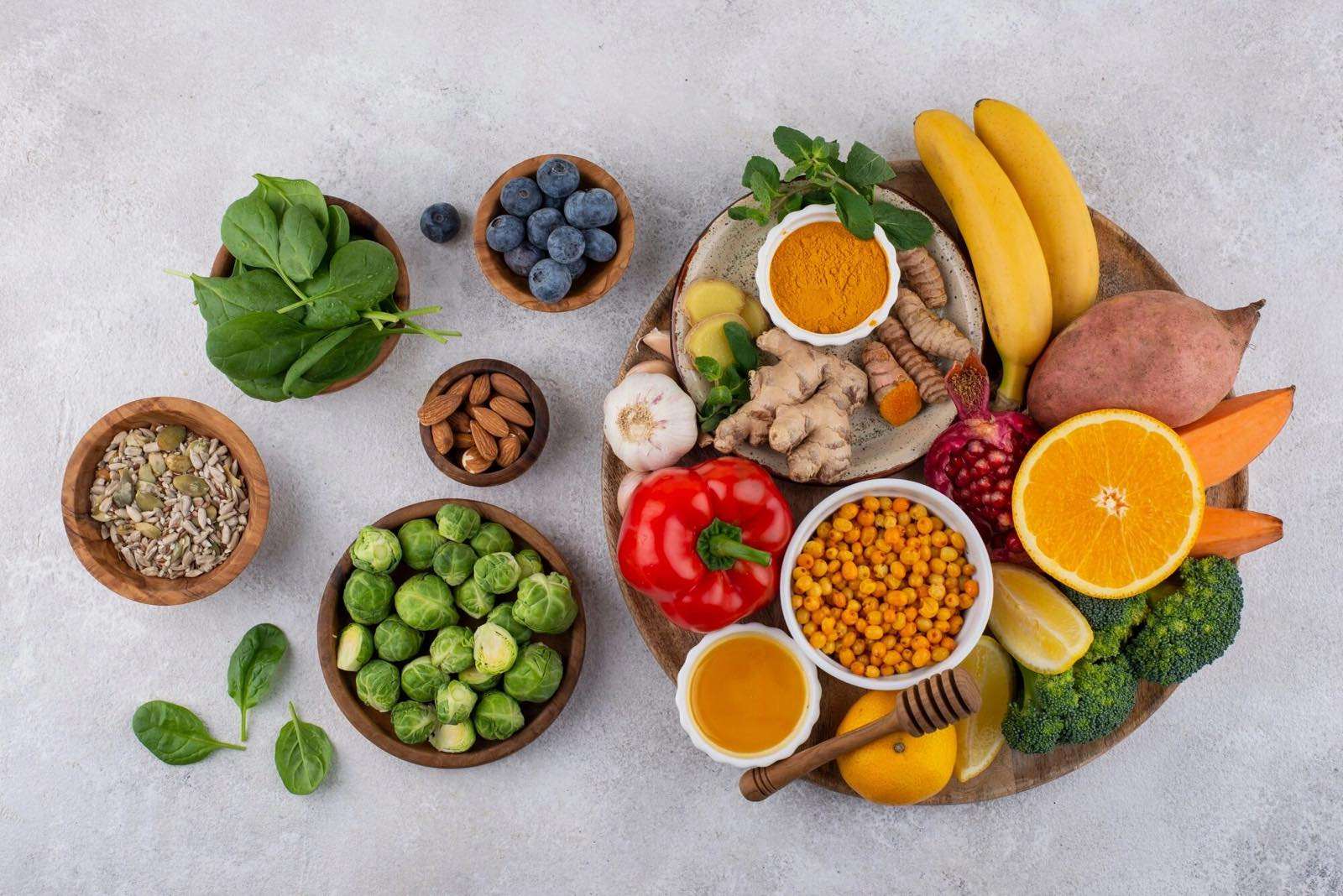Winter can have a big impact on the immune system. Cold weather and less exposure to sunlight mean less vitamin D, which is important for maintaining immunity. Also, viruses and bacteria are easily transmitted indoors, where we spend more time in the winter.
A healthy and proper diet is one of the basic factors that can be our greatest allies in the fight against colds and flu, which are common during this time of year.
We spoke on this topic with Irina Lazarova, a nutritionist, who shared with us several key recommendations for boosting immunity during the winter months.
 What foods should we eat to strengthen the immune system during the winter?
What foods should we eat to strengthen the immune system during the winter?
-To strengthen the immune system in the winter period, it is important to consume foods rich in vitamins, minerals and antioxidants. The list is long, so I would list some foods such as citrus fruits (oranges, lemons, tangerines ...), which are rich in vitamin C. It is inevitable to mention that garlic as a natural antibiotic and onion, which has excellent antibacterial and antiviral properties, should also be present in the diet. Some of the more powerful foods that affect immunity are fermented foods such as yogurt, kefir, sauerkraut, which are rich in probiotics. It is also recommended to consume honey and propolis as natural antiseptics and fish and seafood, which are rich in omega-3 fatty acids and vitamin D, which is important in the winter period. Spices such as turmeric, cinnamon and ginger, which have excellent anti-inflammatory properties, i.e. they reduce inflammation in the body, are no less important.
Which vitamins and minerals are most important for immunity in winter?
-During the winter period, the body has an increased need for certain vitamins and minerals to defend itself against colds, flu and infections. Of the vitamins, I will first mention vitamin C because it stimulates the production of white blood cells, which are crucial for fighting infections, then vitamin D – it strengthens immunity and helps defend against viruses and bacteria. Vitamin A also supports the health of mucous membranes and skin, which are the first line of defense against pathogens.
Minerals include zinc, selenium as a powerful antioxidant that reduces oxidative stress and supports the immune system, magnesium, and iron.
Omega 3 fatty acids are also great for boosting immunity, so we need to be careful about getting them through food or supplements.
 How can we increase our vitamin D levels in winter when we are not exposed to enough sun?
How can we increase our vitamin D levels in winter when we are not exposed to enough sun?
-In the winter, when sun exposure is minimal, it is necessary to take advantage of all the sunny moments outside, but also to consume vitamin D through diet, and if necessary, supplement it with supplements. Naturally, vitamin D in food can be found in fish such as salmon, mackerel, herring, tuna, sardines, in egg yolks, in dairy products such as whole milk, yogurt and cheese. In parallel with these foods, it is recommended to consume foods rich in healthy fats (avocado, nuts, olive oil) that improve the absorption of this vitamin. Supplements are the second way to replenish the lack of vitamin D, but I recommend not taking supplements on your own, it is best to do a blood test with vitamin status and based on the results obtained, in consultation with your doctor, determine whether there is a need to supplement and what the necessary daily dose is for you.
What kind of diet is recommended to be consumed to prevent colds and viruses?
-To strengthen your immunity and prevent colds and viruses, you need to have a varied and nutritionally rich diet, i.e. eat foods rich in vitamin C (oranges, lemons, tangerines, grapefruit, kiwi, strawberries, peppers, broccoli, cabbage), foods rich in vitamin D, foods rich in zinc (nuts, pumpkin seeds, seafood, red meat, beans, lentils), foods rich in probiotics because good intestinal flora is key to strong immunity (yogurt, kefir, sauerkraut, kombucha), garlic, onions and ginger, foods rich in healthy fats (almonds, walnuts, hazelnuts, olive oil, avocado, flaxseed, chia seeds). Chicken soup, which is great for hydrating the body, should also be included in your regular diet, as should ginger, thyme, chamomile and green tea, which also help fight inflammation. It is necessary to drink enough water and fluids and reduce the intake of sugar and refined products that weaken the immune system.
 Are there any specific supplements that can help boost immunity?
Are there any specific supplements that can help boost immunity?
-Yes, in addition to a balanced diet, some supplements can help strengthen immunity, but always before supplementation, a blood test is done to check the vitamin and mineral status and only after the result is obtained is it determined whether there is a need for supplementation and in what dose. Some of the supplements that can help strengthen immunity are vitamin D, vitamin C, zinc, probiotics, selenium and omega-3 fatty acids. An excellent supplement for immunity is echinacea tincture, which is a natural immunostimulant and can help prevent colds, and I would also recommend turmeric as a strong antioxidant on a natural basis.
What drinks are best for staying hydrated in the winter months?
-In addition to water, which is essential for maintaining normal hydration regardless of the season, it is good to consume teas such as ginger and lemon tea, turmeric tea, green tea, thyme tea, and freshly squeezed juices.
How do we know we are getting enough antioxidants in our winter diet??
-Antioxidants mainly come from fruits and vegetables with intense colors, so if your diet includes dark green vegetables (spinach, kale, broccoli), red and orange fruits and vegetables (carrots, pumpkin, beets, pomegranate), berries (frozen raspberries, blackberries, chokeberries) and citrus fruits (oranges, lemons, grapefruit) then you are probably getting enough antioxidants.
 What foods should be avoided during the winter months?
What foods should be avoided during the winter months?
-These would generally be the same foods that we are recommended to avoid year-round, i.e. processed and fast foods that are rich in trans fats and additives that weaken immunity and cause inflammatory processes, and foods rich in sugars.
How to improve the digestive system in winter, when it is often subject to changes?
-The main advice would be to consume enough dietary fiber because it improves digestive health. In winter, we drink less water, which slows down digestion, so it is advisable to drink lukewarm water with lemon every morning, and during the day, in addition to water, teas and homemade soups can be consumed to compensate for the need for fluids. Cold foods can also slow down the digestion of food in winter, so warm homemade soups and stews with spices that stimulate metabolism and reduce bloating (ginger, turmeric and cinnamon) are recommended.
 Could you share with us some homemade recipes or teas that can help us boost our immunity?
Could you share with us some homemade recipes or teas that can help us boost our immunity?
These are some of my favorite and frequently used recipes:
Ginger, honey and lemon tea
Required:
1 piece of fresh ginger (about 2-3 cm, grated or chopped)
1 teaspoon honey
½ lemon (squeezed)
250 ml of warm water
Place the ginger in boiling water and let it steep for 5-10 minutes, then strain and add honey and lemon to taste.
Turmeric and black pepper tea
Required:
1 teaspoon turmeric powder
Pinch of black pepper
250 ml of warm water or milk
1 teaspoon honey (optional)
Put the turmeric in the warm water or milk, add black pepper (for better absorption of the turmeric) and mix. Honey can be added if desired.
Homemade immunity syrup
Required:
1 cup of honey
3 cloves garlic (grated)
1 lemon (squeezed)
Mix all ingredients in a glass container with a lid and let it sit for at least 12 hours. Take 1 teaspoon in the morning on an empty stomach.
How important is sleep for maintaining immunity?
-Sleep, along with nutrition, is one of the most important factors in maintaining a strong immune system. If we don't get enough sleep, our bodies become more susceptible to infections and diseases, because while we sleep, our bodies produce cytokines – proteins that help fight infections and inflammation. Not enough sleep means fewer cytokines, which weakens our immune system.
 Are there any special recommendations for children or the elderly regarding nutrition and immunity in winter?
Are there any special recommendations for children or the elderly regarding nutrition and immunity in winter?
-Yes, both children and the elderly have special nutritional needs in winter, as their immunity may be more sensitive.
Children use up a lot of energy, so their diet should be nutritious, varied, and rich in vitamins and minerals. This means eating foods rich in vitamin C (oranges, lemons, kiwi, peppers, sauerkraut), enough protein for growth and energy (eggs, chicken, fish, legumes), enough calcium for bones through yogurt, kefir, cheese, and almond milk, healthy fats, and probiotics.
In older adults, metabolism slows down and immunity is more sensitive, so it is important to eat easily digestible and nutritious foods, i.e. foods rich in antioxidants such as berries, nuts, dark chocolate, to eat enough protein to maintain muscles by consuming fish, chicken, legumes, eggs, enough calcium and vitamin D for bones through fermented dairy products, sesame and almonds, and teas for better digestion and better immunity.
How does physical activity affect immunity, and should the intensity of exercise be changed in winter?
-Regular physical activity is a great way to boost immunity in winter, but it is important to adapt the intensity according to weather conditions and your own physical condition.
 How to avoid winter fatigue that can weaken immunity?
How to avoid winter fatigue that can weaken immunity?
-Diet has a big impact on energy levels, so in winter, it is recommended to consume foods that provide energy. These include complex carbohydrates, including oats, whole grain bread, quinoa, proteins such as chicken, fish, eggs, legumes, healthy fats such as avocado, olive oil, nuts. Anemia can often be a cause of fatigue, so it is good to eat enough foods rich in iron and magnesium, which can be found in spinach, lentils, nuts, blackberries, chokeberry, cocoa and many others. Processed foods, refined sugar and too much caffeine give a quick but short-lived surge of energy, followed by an even greater drop, so these foods should be avoided.
How can diet affect the prevention of respiratory infections that are common in winter?
-Diet plays a key role in the prevention of respiratory infections. Eating foods that support immune function and maintain a healthy respiratory system can significantly reduce the risk of colds, flu, and other respiratory illnesses. If you apply the tips I have given for strengthening immunity with nutrition, you will definitely protect yourself ahead of time from many colds, viruses, and respiratory infections.
How does stress affect immunity and what can be done to reduce it?
-Stress has a strong impact on immunity. When we are stressed, the body releases hormones such as cortisol and adrenaline, which remain in the bloodstream for longer periods of time when the stress persists. Although these hormones help in short-term adaptation to stressful situations, long-term exposure to cortisol can weaken the immune system, which reduces the body's ability to fight infections. However, there are many effective ways to reduce that stress. Physical activity, meditation, good sleep and a healthy diet are key tools for reducing stress, and thus strengthening immunity.
In the fall and winter, immunity becomes weaker and more susceptible to viruses and infections, so it is important to focus on proper nutrition, physical activity, and other healthy habits. Following the advice of nutritionists can help you boost your immunity and feel healthy and energetic.
Ivana Vangelova
